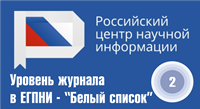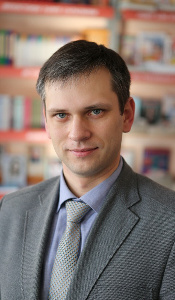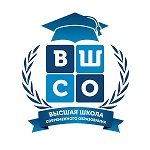АКТУАЛИЗАЦИЯ ФОРМИРОВАНИЯ ФУНКЦИОНАЛЬНОЙ ГРАМОТНОСТИ ОБУЧАЮЩИХСЯ ОБЩЕОБРАЗОВАТЕЛЬНОЙ ШКОЛЫ
Аннотация
Цель. Статья посвящена актуальной в современных социокультурных условиях теме формирования функциональной грамотности обучающихся общеобразовательных школ. Предметом анализа является наиболее эффективные формы и технологии формирования функциональной грамотности обучающихся. Автор ставит целью представить ключевые направления управления формированием и оценкой функциональной грамотности на региональном уровне (на примере Самарской области).
Методы и методология проведения работы. Исследование базируется на когнитивной парадигме образования. Основу исследования составляют когнитивный подход и соответствующие ему принципы человекообразности и социосообразности.
Результаты работы заключаются в том, что управление формированием и оценкой функциональной грамотности на региональном уровне (на примере Самарской области) базируется на скоординированных действиях руководителя образовательной организации, педагогов, родителей, а также психологической готовности самого обучающегося к формированию функциональной грамотности. Автор делает предположение, что необходима разработка методологии и инструментария для формирования и разработки критериев оценивания функциональной грамотности обучающихся.
Область применения результатов. Результаты исследования могут быть применены в сфере основного общего и среднего общего образования.
Скачивания
Литература
Список литературы
Асхадуллина Н.Н., Вильданова Д.Р. Формирование функциональной грамотности школьников как актуальная проблема российского образования // Проблемы современного педагогического образования. 2021. № 2(70). С.27-30.
Кемельбекова Г. А. Особенности формирования функциональной грамотности учащихся по предметам гуманитарного цикла // Проблемы и перспективы развития образования: материалы VIII международной научно-практической конференции (г. Краснодар, февраль 2016 г.). Краснодар: Новация, 2016. С. 6-9.
Когнитивная педагогика: учебно-методическое пособие / Р.Х. Гильмеева, А.Р. Камалеева, А.С. Кац, Е.Ю. Левина, В.Ш. Масленникова, Л.Ю. Мухаметзянова, Т.М. Трегубова, Л.А. Шибанкова; под научной редакцией Е.Ю. Левиной. Казань: Институт педагогики, психологии и социальных проблем, 2020. 228 с.
Корнилова Т.В. Исследовательская деятельность школьников как способ формирования функциональной грамотности // Научные труды Московского гуманитарного университета. 2020. №4. С. 56–63. https://doi.org/10.17805/trudy.2020.4
Левина Е.Ю., Мухаметзянова Л.Ю. Развитие Человека знания в ракурсе когнитивной парадигмы // Казанский педагогический журнал. 2020. №3. С. 8-18.
Методические рекомендации по вопросам формирования функциональной грамотности / отв. ред. А.А. Бучек. М.: «Академия реализации государственной политики и профессионального развития работников образования Министерства просвещения Российской Федерации», 2022. 136 c.
Николина В.В. Развитие функциональной грамотности обучающихся в образовательном процессе // Нижегородское образование. 2021. № 1. С. 4-13.
Образовательная система «Школа 2100». Педагогика здравого смысла: сборник материалов / под редакцией А.А. Леонтьева. М.: Баласс, Издательский дом РАО. 368 с.
Оценка по модели PISA: динамика результатов за 2019-2020 гг. М: Федеральный институт оценки качества образования, 2020. 19 с.
Функциональная грамотность современного школьника: сборник лучших практик / отв. ред. В.И. Громова. Саратов : ГАУ ДПО «СОИРО», 2022. 136 с.
A review of functional literacy: definition, cognitive, linguistic, and numerical aspects / Vágvölgyi R., Coldea A., Dresler T., Schrader J. , Nuerk H-C. // Frontiers in psychology. 2016. Vol. 7, pp. 1-13. https://doi.org/10.3389/fpsyg.2016.01617
Khalikova G. C, Adilbekova A., Zhanysbek A. Formation of functional literacy of school children in the process of studying biology // International Journal of Innovative Technologies in Social Science. 2018. Vol. 1, no. 4(8), pp. 15-20. https://doi.org/10.31435/rsglobal_ijitss/01062018/5684
Kudratova A.I. Methodological fundamentals of functional literacy formation // European Scholar Journal. 2021. Vol. 2, no. 8, pp.77-80.
Masodikova Z. Ways of formation and development of the check components of the functional literacy of the students // Novateur publications. 2022. Vol. 8, no. 11, pp. 208-212.
Nurgiyantoro B., Lestyarini B., Rahayu D. H. Mapping junior high school students’ functional literacy competence // Cakrawala Pendidikan. 2020. Vol. 39, no. 3, pp. 560-572. https://doi.org/10.21831/cp.v39i3.34061
References
Askhadullina N.N., Vildanova D.R. Formirovanie funkcional’noj gramotnosti shkol’nikov kak aktual’naya problema rossijskogo obrazovaniya [Formation of students’ functional literacy as an actual problem of Russian education]. Problemy sovremennogo pedagogicheskogo obrazovaniya [Problems of modern pedagogical education], 2021, no. 2(70), pp. 27-30.
Kemelbekova G.A. Materialy VIII mezhdunarodnoj nauchno-prakticheskoj konferencii “Problemy i perspektivy razvitiya obrazovaniya” [materials VIII of the international academic and research conference: problems and prospects of development of education]. Krasnodar, 2016, pp.6-9.
Kognitivnaya pedagogika [cognitive pedagogy]: study guide / R.Kh. Gilmeeva, A.R. Kamaleeva, A.S. Kats, E.Yu. Levina, V.Sh. Maslennikova, L.Yu. Mukhametzyanova, T.M. Tregubova, L.A. Shibankova, edited by E.U. Levina. Kazan: Institute of Pedagogy, Psychology and Social Problems, 228 p.
Kornilova T.V. Issledovatel’skaya deyatel’nost’ shkol’nikov kak sposob formirovaniya funkcional’noj gramotnosti [Research literacy of students as a way of formation functional literacy]. Nauchnye trudy Moskovskogo gumanitarnogo universiteta [Scientific works of the Moscow humanities university], 2020, no. 4, pp. 56-63. https://doi.org/10.17805/trudy.2020.4
Levina L.Yu., Mukhametzyanova L.Yu. Razvitie Cheloveka znaniya v rakurse kognitivnoj paradigm [Development of Human of knowledge in the discource of cognitive paradigm]. Kazanskiy pedagogicheskiy zhurnal [Kazan Pedagogical Journal], 2020, no. 3, pp.8-18.
Metodicheskie rekomendacii po voprosam formirovaniya funkcional’noj gramotnosti [Methodical recommendations on the issues of formation functional literacy]. M.: Academy of realization of public policy and professional development of educators of the Ministry of Public Education of the Russian Federation, 2022, 136 p.
Nikolina V.V. Razvitie funkcional’noj gramotnosti obuchayushchihsya v obrazovatel’nom processe [Development of students’ functional literacy in the educational process]. Nizhegorodskoe obrazovanie [Nigniy Novgorod education], 2020, no. 1, pp. 4-13.
Obrazovatel’naya sistema «Shkola 2100». Pedagogika zdravogo smysla [Educational system “School 2100”. Pedagogics of common sense]: collection of materials. Moscow: Balass, Publishing House RAE, 368 p.
Ocenka po modeli PISA: dinamika rezul’tatov za 2019-2020 gg [Assessment on the PISA model: dynamics of results for 2019-2020]. Moscow: Federal Institute on assessment quality of education, 2020, 19 p.
Funkcional’naya gramotnost’ sovremennogo shkol’nika: sbornik luchshih praktik [functional literacy of a modern school child: collection of best practice]. Saratov: SOIRO, 2022, 136 p.
A review of functional literacy: definition, cognitive, linguistic, and numerical aspects / Vágvölgyi R., Coldea A., Dresler T., Schrader J. , Nuerk H-C. Frontiers in psychology, 2016, vol. 7, pp. 1-13. https://doi.org/10.3389/fpsyg.2016.01617
Khalikova G. C, Adilbekova A., Zhanysbek A. Formation of functional literacy of school children in the process of studying biology. International Journal of Innovative Technologies in Social Science, 2018, vol. 1, no. 4(8), pp. 15-20. https://doi.org/10.31435/rsglobal_ijitss/01062018/5684
Kudratova A.I. Methodological fundamentals of functional literacy formation. European Scholar Journal, 2021, vol. 2, no. 8, pp. 77-80.
Masodikova Z. Ways of formation and development of the check components of the functional literacy of the students. Novateur publications, 2022, vol. 8, no. 11, pp. 208-212.
Nurgiyantoro B., Lestyarini B., Rahayu D. H. Mapping junior high school students’ functional literacy competence. Cakrawala Pendidikan, 2020, vol. 39, no. 3, pp. 560-572. https://doi.org/10.21831/cp.v39i3.34061
Просмотров аннотации: 248
Copyright (c) 2023 Viktor A. Akopian

Это произведение доступно по лицензии Creative Commons «Attribution-NonCommercial-NoDerivatives» («Атрибуция — Некоммерческое использование — Без производных произведений») 4.0 Всемирная.





































